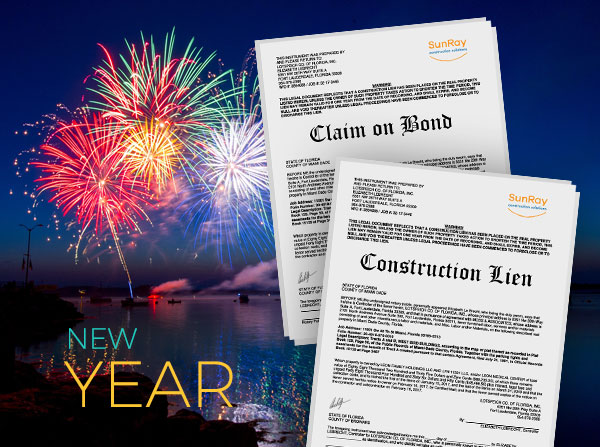A Contractors, Subcontractor’s and Supplier’s Step-By-Step Guide to Getting Paid - Illinois - Webinar
In this webinar, contractors, subcontractors and suppliers in Illinois can learn what are the key clauses that they should look out for in their construction contracts and the important elements to consider while working on private as well as public construction projects.
Last updated:
Dec
16
,
2025
Published:
Feb 28, 2024
6 Mins
Read
Non-payment issues are quite common while working on construction projects, which is why contractors, subcontractors and suppliers should take all the necessary steps and precautions to preserve their payment rights while working on different types of construction projects. Whether you are working on a private project or a public project, it is important to be aware of all the notice requirements, deadlines, etc., to protect your lien and bond rights.
In this blog, presented by SunRay Construction Solutions and David M. Duree, Attorney at Law, David. M. Duree and Associates, P.C., construction professionals in Illinois can learn in detail about the importance of going through their contract thoroughly, requirements to consider while working on private projects, and how to preserve their payment bond rights while working on public projects.
Why Should You Read the Contract?
Whether you are a general contractor, subcontractor or a supplier, the very first step that you need to take while working on construction projects is to read the contract as thoroughly as possible. This is because the contents of your contract play a crucial role in protecting your payment rights and helping you in making valid lien and bond claims. This is why you should always ensure that you have a written contract.
Although general contractors, subcontractors and suppliers have varying amounts of leverage in determining what will be in a contract, there are some key provisions that you should negotiate on if you can do so.
What are the Key Provisions to Negotiate in A Contract?

These key provisions include various clauses like:
- Pay when Paid vs. Pay if Paid Clauses – The pay when paid clause means that the general contractor is obligated to pay the subcontractors and suppliers only when they get paid by the owner. The pay if paid clause usually means that the general contractor has to make the payment downstream within a reasonable amount of time, even if they don’t get paid by the owner. Make sure that you are clear on which clause is being included in your contract and if you can negotiate, then choose the option which is favorable to you.

- Arbitration Clauses – Many of the standard construction contracts have arbitration clauses. Often there is a little bit of built-in bias by any arbitration organization, and it is typically in favor of the party that issues the contract. So, if the general contractor provides the contract and they include arbitration clauses, then there might be a little bit of bias towards the general contractor. So, keep an eye out for the arbitration clause, especially if you are a sub or supplier.
- Attorney Fee Clauses – Attorney fee clauses are important because they provide the leverage to whichever party has the superior position. The other side may have to pay their attorney fees as well as the opposing party’s attorney fees too.
- Termination Clauses – Termination clauses also play a crucial role, especially if you are in a situation where you need to resolve your contract in one way or the other.
- AIA Standard Contracts and Subcontracts – A lot of these terms and clauses are included in the AIA Standard Contracts and Subcontracts, so make sure you go through them in detail.
What are the Key Points to Consider for Private Projects – Mechanics Lien?
When it comes to construction projects, there are two main categories – private projects and public projects. If you are working on a public project, then you cannot file a mechanics lien. Instead, you will have bond rights and you can make a claim on the bond.
Here are a couple of things to keep in mind when working on private projects.
- Irrespective of the type of claim you are making and the cost of the claim, it is highly recommended that you consult an attorney because there are several issues that can arise which in turn can have a negative impact on your claim if you try to represent yourself.
- When making a mechanics lien claim, you need to provide a legal description of the land/building. Your attorney can help you get this information.
- You will have to file a Notice of Intent to file a mechanics lien within 90 days.
- You will need to file a sworn statement of mechanics lien with the Recorded of Deeds within four months or within two years if there are no other liens or claims except for that of the general contractor.
- If you are a subcontractor or supplier, you must file a claim notice within 90 days of the last work performed.
- There is an exception with respect to the two-year timeline of filing a lawsuit to enforce your lien, irrespective of whether you are the general contractor, subcontractor or supplier. The exception is that if the owner issues a written notice to file the Complaint to Enforce, then you have only 30 days to file your mechanics lien. If you fail to do so within 30 days, then your lien will expire. The purpose of that is to give the owner an ability to resolve any claims quickly and not wait for two years to see if someone files a lawsuit to enforce their mechanics lien.
- As indicated, subject to the above exception, if the owner files the notice, then you have two years to file your lawsuit to enforce the mechanics lien.

As per the statute, lien claimants are entitled to recover interest at 10% per annum.
- There is also a provision for single family residences. The general contractor is obligated to provide the owner with a sworn list of all the names and addresses of all the subcontractors and suppliers before receiving payment.
- The general contractor should provide the Notice in 10-point style. Typically, most of the standard contracts that general contractors use will have this built-in within the contract.
- Also, each subcontractor must provide a written notice of its subcontract to the owners or occupiers of the single-family residence within 60 days of first performing their work on the project.
- But if the general contractor has already notified the owner or occupier, then the subcontractor does not have to provide any additional notice.
What are the Key Points to Consider for Public Projects – Public Works Payment Bonds?
The second category is the public projects and below are the key points to consider while dealing with public projects payment bonds.
- The general contractor is required to provide a performance bond as well as State Public Project Payment Bonds for public projects which are over $150,000 or for Department of Transportation (DOT) project that are over $500,000.
- For such projects, contractors, subcontractors and suppliers can file a lawsuit against the bonding company and the contractor above them within one year of their last date of work. This is further applicable if they served a Verified Notice of Claim with the public body within 180 days after last performing work and within 10 days thereafter served a copy on the general contractor.
- The Mechanics Lien Act provides a provision that establishes a lien on the public funds due to the general contractor from the owner. Subcontractors and suppliers can establish a lien on the public funds by providing a sworn written notice of the claim and then filing a lawsuit within 90 days.
- Although there is no deadline for serving the notice of claim, it is recommended to do so as quickly as possible because the claim will not be applicable on the funds that the public owner of the project has already paid to the general contractor.

For Federal project, there is a federal statute called the Miller Act. This Act requires payment bonds on federal public projects. Lawsuits may be brought within 90 days after the last work performed and the lawsuit must be filed within one year.
- If a subcontractor or supplier has a direct contract with a subcontractor but not with the general contractor, then they need to provide a written notice to the general contractor within 90 days of the last work performed and lawsuit must be filed within one year of the last work performed.
- Contractors may also sue the public bodies if they fail to require the general contractor to provide a Public Works Payment Bond. In such situations:
- The Illinois Bond Act, 30 ILCS §550/1, et seq., is deemed to be a part of every contract.
- The subcontractors and suppliers are third-party beneficiaries of the contract between the general contractor and the public body, permitting the subcontractors and suppliers to sue the public body for failure to provide a payment bond as required by the statute.
So, these are some of the key things to consider and steps to take when you don’t get paid as a general contractor, subcontractor or supplier. Also, as mentioned earlier, making a lien claim or bond claim involves various notice requirements and adherence to strict timelines, hence, it is best to get in touch with Sunray’s legal experts who can guide and help you in getting paid successfully. Call us on 800-403-7660 today to get paid faster.
Protect Your Rights with a Notice to Owner
Sending a notice to owner is the first step to secure payment on construction projects. Learn how a notice to owner Florida helps protect your lien rights and ensures you get paid.
Protect Your Payment Rights with Florida’s Most Trusted Notice & Lien Services
Notice to Owner – Secure your lien rights early. File your NTO now!
Notice to Owner Florida – Stay compliant with Florida deadlines. Send your NTO today!
Mechanics Lien Florida – Get paid faster. Start your Florida lien process now!
FAQs
How can a property owner remove a Notice of Lien from their property?
A property owner can remove a Notice of Lien by either paying the amount claimed in the lien or by obtaining a lien release or bond from the lien claimant.
What is a Notice of Non-Payment, and when should it be served?
A Notice of Non-Payment is a document served by subcontractors or suppliers to inform the property owner, contractor, or other stakeholders that payment for services or materials has not been received. In Illinois, this notice should be served within 90 days of the last date of furnishing labor or materials.
What information should be included in a Notice of Lien?
A Notice of Lien in Illinois typically includes details such as the name and address of the lien claimant, a description of the labor or materials provided, the name of the property owner, the legal description of the property, and the amount owed.
When should subcontractors and suppliers serve a Notice of Claim under the Miller Act?
Subcontractors and suppliers must serve a Notice of Claim within 90 days from the date of their last furnishing of labor or materials to the project.
Do federal projects require the filing of mechanics' liens?
No, federal projects typically do not involve mechanics' liens. Instead, subcontractors and suppliers on federal projects may have rights under the Miller Act.
Sunray Construction Solutions offers professional "Notice to Owner Florida" services to help you secure your mechanics lien florida rights in the construction industry. Looking for a free Notice to Owner form in Florida? Get your free, editable "Florida Notice to Owner Template" today for easy and accurate preparation.












